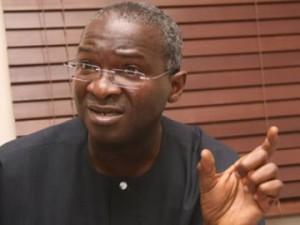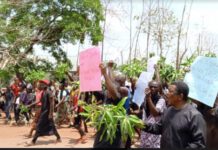Lagos State governor, Babatunde Fashola (SAN), has advocated for change in road culture, blaming the attitude of road-users for the spate of accidents on the roads.
Speaking at the presentation of a book, Out Of Africa: Fashola, Reinventing Servant Leadership to Engender Nigeria’s Transformation, the governor said the number of motorcycle accidents on Lagos roads has decreased significantly since the enactment of the Road Traffic Law.
“Today, that number has reduced to a little over 110 a month,” he disclosed.
“The deaths have reduced from 15 to one and in the last three months we have not had any deaths from motorcycle accidents. That for me is the responsibility of Government. Though it was a tough decision that was given political colouration, I was clear in my mind that this was the way to go.”
Reacting to the accident that claimed the life of former president of the Academic Staff Union of Universities, ASUU, Fashola blamed the academic’s death on the reckless driving of a state governor’s convoy. He said the frequency of such avoidable carnage informed the decision by his administration to enact some of the amended traffic laws noting that then the government’s intent at the time was unclear.
Speaking on the use of sirens by some government officials and agencies, Governor Fashola said the outrage being felt by Nigerians over the death of the University don and the manner of his death was of concern to him also but added, “the questions we should ask ourselves is, ‘do we manufacture sirens here?
“We import sirens and fund other economies in Asia. We spend money to buy a horn with which to terrorise ourselves. Those who manufactured these things say they should be used as a call in times of emergency, are we living in perpetual emergency?”
Fashola, who advocated the observation of a horn-free day in the country, noted that not only elected governors use sirens, but other agencies of government also use it. “But In Europe, you may be moving on the road for one week and you will not hear the horn and when you hear the siren only about two people are likely to be on the move and they are either ambulance or police.”
“I asked yesterday that maybe we should sit down and decide whether we will have one day of no horns. If we agree, believe me we can do it. If Lagos does it, Osun does it, Ekiti does it, Edo does it, Kano does it, then we can agree that one day in Nigeria there shall be no horn. Once we achieve one day, we will achieve two, then three and before you know it we will be on.”
The governor said that the Nigerian dream had seemingly been “elusive” because Nigerians themselves have not taken time to define and confront it as a national phenomenon adding that most Nigerians have looked at it with much scepticism.
“The Nigerian dream is not elusive. It is because we have not confronted and felt about what it has become for us. We haven’t defined it. The American dream is more attractive to us. But the Nigerian dream happens here every day. It is the Nigerian dream that makes me stand here,” Fashola said.





